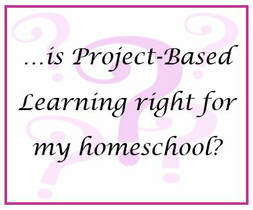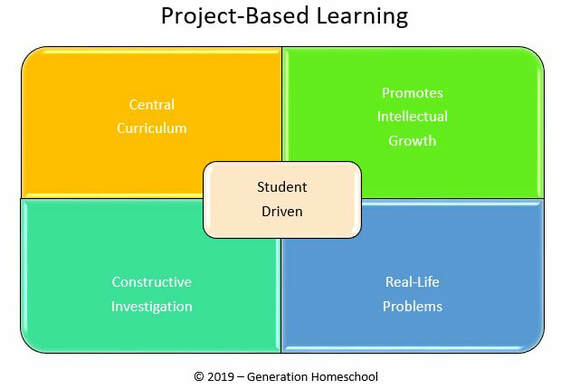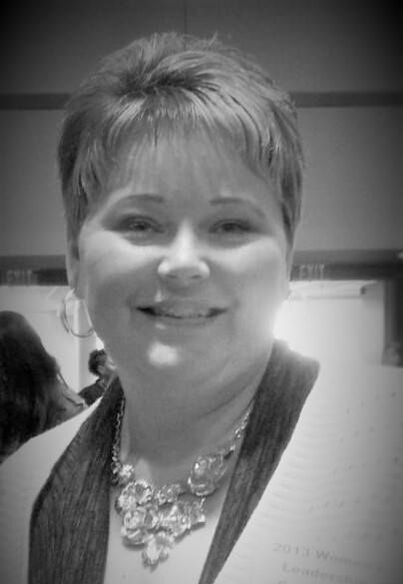 Dear Readers, This must undoubtedly be the "week of negatives" for my Facebook and Twitter feeds. I've seen posts dismissing the use of "fingers" for counting, eliminating quality family time for the sake of "getting work done", and *deep breath* "reasons why kids are acting out now more than ever and ways to avoid that idle time by giving them more work because more work means more learning and everyone wants to learn".... What the hiccups, man?! Folks, there are reasons why I BLOG and then there are REASONS why I blog. Today's post is very much a REASON! Hang on to your hats, ladies and gents -- this one's a whopper! In the last few days, I've seen so much negativity, however unintentional it may be, regarding why homeschool parents shouldn't do this, or shouldn't do that. Likewise, they should totally do this, or certainly do that. But the one post that really just chapped my hide was the one that said to stop doing projects for the sake of doing projects. Now, I know that sometimes, it's hard to get motivated, so you throw a fun project in, just to get the kids involved. Where is the down side to that? I've been known to fill their day up with projects for each subject. Was it work? Heck yeah! But did they learn? You bet your sweet bippy they did! So, I started wondering exactly how project based learning (PBL) works. How is project based learning different from your typical, run of the mill, "let's fill up some time" project? And I was not at all surprised to learn that PBL enhances a child's learning experience in five extremely significant ways. It doesn't mean that your random project loses its validity. It just means that PBL offers a greater depth of study and involvement. So before you toss out your list of fun projects, consider making some changes to the simple projects, and take your children's learning to new heights! 1. "PBL Projects are central, not peripheral to the curriculum... In fact, they ARE the curriculum." According to Dr. John W. Thomas's (2000) article, "the project is the central teaching strategy; students encounter and learn the central concepts of the discipline via the project" (p. 3). This simply means that if you or your children are finding the curricula dull, or not fully supportive of what you are wanting, find (or create) a project that better supports the concept you are teaching your child(ren). 2. "PBL projects are focused on questions or problems that "drive students to encounter (and struggle with) the central concepts and principles of a discipline." According to Thomas, to reach the status of PBL, one starts with a "driving question" or rather, an ill-defined problem. Then, the PBL is used alongside thematic units or topics that merge from multiple disciplines, but must be "orchestrated in the service of an important intellectual purpose" (p. 3). This means you have to do more than just assign a project. You have to direct it in a manner than leads the student to gain additional knowledge that promotes intellectual growth. 3. "Projects invovle students in a constructive investigation". Thomas points out that using PBL provides the student with an opportunity to investigate through a goal-directed process that involves inquiry, knowledge building, and resolution... and may be design, decision-making, problem-finding, problem-solving, discovery, or model-building" (p. 3). The difference between PBL and your everday, run of the mill project: PBL involve the student to gain a new skill or understanding, not simply a reinforcement of previously learned skills or knowledge. 4. "Projects are student-driven to some significant degree". Wheweee! Man, I hear the helicopter blades and are they LOUD! Parents. Let your children learn. Let them wonder. Let them investigate on their own. Trust me, the Earth is round, they won't fall off. Let them get lost in a project. Let them find their way out. Give them some breathing room and let them be their own guide for a little while. I promise, you won't lose them in a homeschool room anymore than you would if you went to the bathroom, started a load of laundry, and made some dinner. Thomas states that "PBL projects incorporate a good deal more student autonomy, choice, unsupervised work time, and responsibility than traditional instruction and traditional projects" (p. 4). 5. "Projects are realistic, not school-like". As parents of homeschooled children, we strive to ensure that our children are ready for the real world. We do that in a number of ways. In some ways we operate like conventional school (the goal of learning), but we do so in a not-so-conventional manner (like pajamas, cereal for lunch, or even homeschooling at night). It stands to reason that our projects should also be reflective of our nonconformity, right? Thomas states that PBL projects "...emobdy characteristics that give students a feeling of authenticity... PBL incorporates real-life challenges where the focus is on authentic (not simulated) problems or quesitons and where solutions have the potential to be implemented" (p. 4). sAnd according to Thomas' findings, some 90% of those participating demonstrated a significant improvement in standardized test scores. Now, I know some of you may be saying, "my child doesn't need standardized test". I couldn't agree more! But just imagine if you will, your child working on PBL projects and gaining that extra knowledge and skill set, regardless of whether a standardized test is administered. That's like liquid gold for the brain!
I could list several of the scores reported from schools that participated in the study: they are astounding. You can read the article here. Or you can take my word for it. Before you throw out those simple projects, ask yourself: Can I make these the center of my curriculum? Can I give my children room to grow? Can I direct them gently into solving the problem? Can they learn something new from this? Can I make this real-life? Take the time to incorporate some PBL projects in your homeschool. If you can't, by all means, reach your child any way you can. If that means a simple project for each subject, or a random project to get their participation - it's your homeschool. Do what works for YOU! Just do me a favor: never let anyone tell you NOT to do something if it is working for you! Until next time, LaVonda
0 Comments
Leave a Reply. |
HELLOWelcome! My name is LaVonda. I am the wife of Rodney, the mom of 5 remarkable kids (well, 2 are adults now), an avid homeschooler, blogger, and sociologist. I am blessed with the ability to spend my time sharing our homeschool and life experiences with you. It is my hope to provide you with motivation, ideas, and some candid stress-relief through my blog - Mom's Scribe! Grab a cup of coffee, sit on down, and make yourself at home! Past Scribes
August 2020
Categories
All
|


 RSS Feed
RSS Feed
